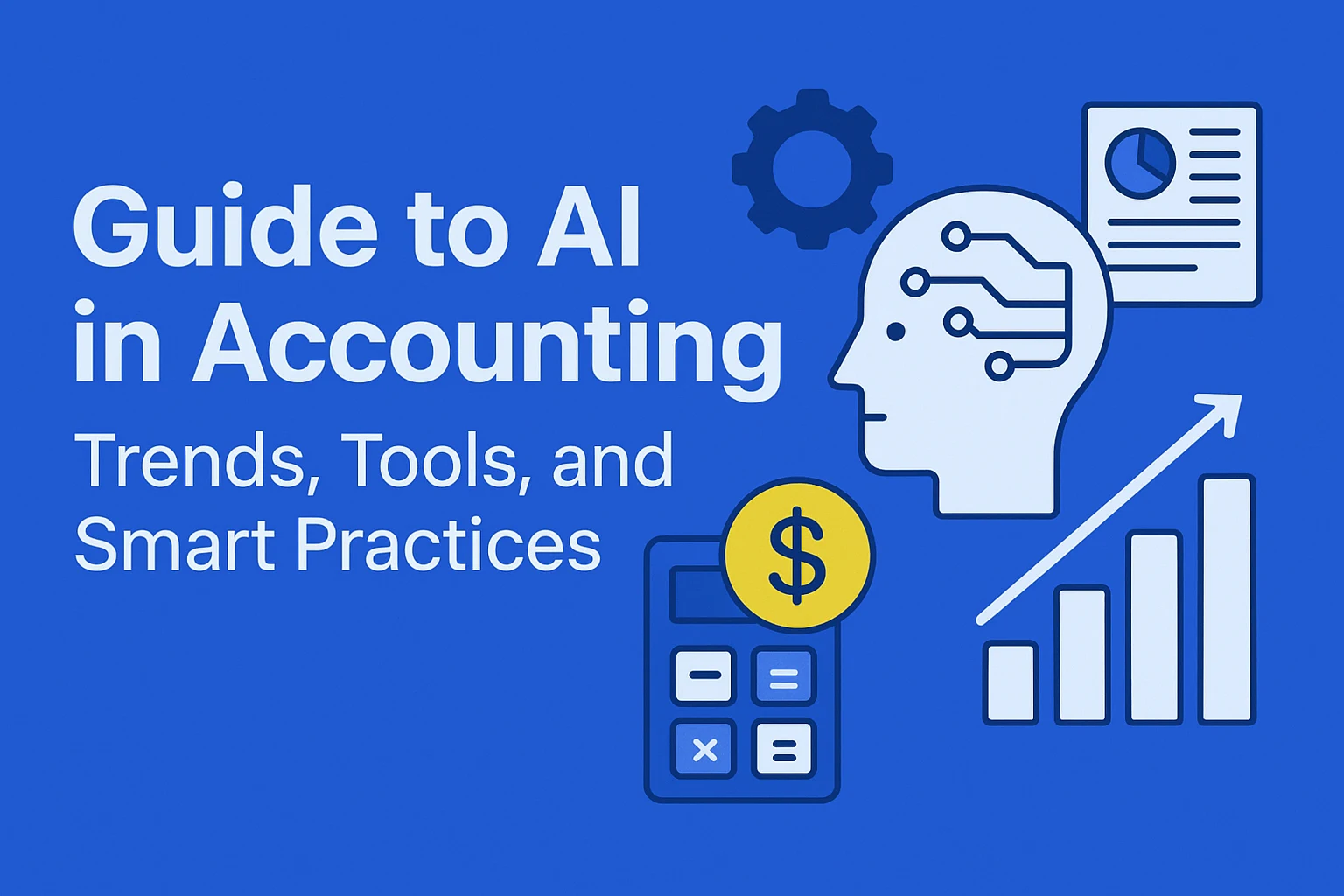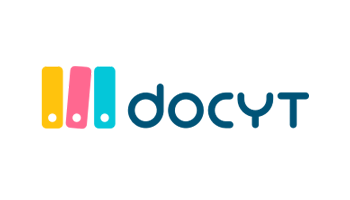
GET A FREE CONSULTATION TODAY!
Fill in the details, and our experts will contact you.

The accounting profession is on a new frontier—the era of AI in finance management, compliance, and strategy. Artificial intelligence in accounting is no longer a futuristic idea; in 2025, it has become the driving force behind contemporary financial management. No longer does any accountant have to perform complex calculations on economic patterns, or perform tedious tasks, automating the entry of data and reconciliations when AI is the silent friend any accountant should have.
Firms of all sizes are integrating AI-powered solutions to automate processes, enhance precision, and deliver predictive value that was previously accessible only to large companies across Australia and globally. Instead of removing accountants, AI empowers them by freeing them from some repetitive data-entry duties and enabling them to focus on advisory work, forecasting, and value-oriented decision-making.
This is an in-depth overview of everything you should know about AI in accounting: the current trends shaping 2025-2026, the most successful AI-assisted accounting solutions, the basic selection criteria, and professional tips for a seamless implementation. This guide will equip you, whether you are a small business owner or a member of a finance team, and enable you to stay one step ahead in using AI.
AI accounting tools are intelligent software that employ machine learning (ML) and natural language processing (NLP) to automate and simplify daily financial operations. These tools can be automated to reconcile transactions, process invoices, detect fraud, and comply with tax requirements and project cash flow, all at astonishing speed and accuracy.
Compared with traditional systems that rely on human input, AI tools in accounting are more systematic in their learning. It implies that it is not only able to process information more quickly but also to identify financial anomalies and trends, and to provide real-time insights that can enhance decision-making.
Essentially, AI technologies shift accounting from a reactive, time-consuming practice to an intelligence-driven, strategic approach that supports informed financial planning and more advantageous businesses.
Accounting is changing fast, and AI in accounting 2025 is about more intelligent automation, deeper insights, and proactive financial management. The following trends are the most effective ones that cause change:
Auditing no longer involves a yearly fight. Financial records are now under constant audit by AI systems, and anything out of the ordinary or a compliance violation is automatically flagged. This mitigates risk and reduces instances of transparency and trust within organizations.
Gone are the days of guesswork. AI algorithms now offer unprecedented accuracy in predicting profits, expenses, and cash flow to accountants. This enables companies to foresee financial issues before they occur and make alterations in advance.
ATO and IFRS standards are constantly changing, making it challenging to stay up to date. The accounting artificial intelligence tools are now automatically updated to reflect current regulations, ensuring filings are relevant and error-free.
Artificial intelligence in voice and chat is changing client relationships. Conversational commands can now help accountants access data, create reports, and respond to client inquiries in real time, reducing the time it takes them to react exponentially.
Due to increased cyber risks, an AI-based security system analyzes transactions for suspicious behavior and anomalies to prevent fraud before it occurs. These systems are continually improved through machine learning to defend sensitive financial information 24/7.
These innovations are providing accountants with a strong competitive advantage, not by enabling them to supplant their functional knowledge, but by making them more efficient, accurate, and strategic in all decisions that affect the financial environment.
With dozens of websites claiming to be the best AI accounting software, it is essential to know what to look for. The following five are the basic requirements to consider when making a decision:
Choose the tools that will automate the repetitive parts of the work, such as reconciliations, invoicing, and data entry. This will save hours per week and will enable the accountants to work on what is more valuable, such as financial planning.
The AI tool needs to be compatible with the systems already in place with QuickBooks, Xero, MYOB, or your ERP. Data flow is smooth to ensure consistency and minimize manual effort.
Security is non-negotiable. Use software that complies with GDPR and provides bank-level encryption to protect sensitive client and company data.
Select AI solutions that scale to your business - with flexible pricing and modular add-on options, as well as scaling performance as your accounting volume increases.
Implementing AI is less challenging because the provider provides training, onboarding, and support. This guarantees that your group will fully use the tool.
With AI taking over the finance industry, 2025 will see a new breed of AI accounting systems that automate the foundations of accounting, improve compliance, and provide real-time financial analysis. These innovative solutions are changing the way accountants do their work, starting with automating invoices and cash flow forecasting, and ensuring regulatory accuracy. The list below is a selection of the top AI tools that can benefit accountants in 2025, and each has its own benefits depending on business needs and size.
|
|
|
|
Best For |
SMEs wanting end-to-end bookkeeping automation |
|
Key Features |
Predictive cash flow, AI invoice tracking, and smart expense matching |
|
Automation Type |
Rule-based + predictive analytics |
|
Security & Compliance |
256-bit encryption and GDPR-compliant |
|
Integration Support |
Works with payroll, POS, and banking apps |
QuickBooks remains a dominant and influential player in the accounting software market, thanks to its integrated AI Assist feature. It will automatically classify transactions, predict cash flow, and produce intelligent financial records —saving hours of manual data entry. The tool is well-suited for SMEs seeking to simplify bookkeeping and enhance the accuracy of economic forecasts.
|
|
|
|
Best For |
Startups and remote teams |
|
Key Features |
Auto-reconciliation, payment reminders, and anomaly detection |
|
Automation Type |
Workflow and rule-triggered automation |
|
Security & Compliance |
ISO 27001 and GDPR compliant |
|
Integration Support |
Seamless link with Zoho CRM, Inventory, and payment gateways |
Zoho Books extends the AI-based automation to small organizations and startups at a steep cost. The system handles reconciliation, payment reminder, remittance, and record anomaly detection. Being among the most affordable AI-based accounting tools, it offers intelligent reporting and is therefore one of the most cost-effective options for any business expansion.

|
|
|
|
Best For |
Accounting firms need hybrid automation |
|
Key Features |
Machine learning categorization and data cleansing |
|
Automation Type |
AI + human-assisted automation |
|
Security & Compliance |
SOC 2 Type II certified |
|
Integration Support |
Connects with Xero, QuickBooks, and client portals |
Botkeeper is an artificial intelligence-based bookkeeping product that uses machine learning, but is checked by a human to balance the efficiency of machine learning with the probability of human expert judgment. It removes tedious work from the accounting system and allows human accountants to cross-verify. This is why it is an ideal product for expanding accounting businesses seeking scalable, precise, and cost-effective automation.
|
|
|
|
Best For |
Enterprises processing large invoice volumes |
|
Key Features |
Real-time invoice classification and cost prediction |
|
Automation Type |
Deep learning AI |
|
Security & Compliance |
Follows enterprise-grade SOC 2 security |
|
Integration Support |
Syncs with ERP and procurement systems |
Enterprise-ready and built with deep learning, Vic. artificial intelligence automates and streamlines invoice processing, approvals, and cost recognition. It reduces human interference by analyzing accounting data and continually improves its accuracy. Vic.ai supports high-volume processing and enhanced control for companies that handle large transaction volumes.
|
|
|
|
Best For |
Teams managing multiple client projects |
|
Key Features |
Smart task scheduling, workflow alerts, and AI summaries |
|
Automation Type |
NLP and task-based AI |
|
Security & Compliance |
GDPR and CCPA compliant |
|
Integration Support |
Integrates with Gmail, Outlook, and CRMs |
Karbon AI is an automation tool built into practice management and workflows. It gives accountants opportunities to computerize their communication with clients, analyze capacities, and simplify operations. Specifically, it is essential for companies with several buyers because it can improve time management and workflow transparency through task forecasting and analytics.

|
|
|
|
Best For |
Multi-location businesses needing real-time visibility |
|
Key Features |
Auto-categorization, document sync, and live reporting |
|
Automation Type |
Intelligent document processing (IDP) |
|
Security & Compliance |
SOC 2 and GDPR compliant |
|
Integration Support |
Works with QuickBooks and accounting platforms |
Docyt is geared toward real-time financial visibility. Its AI-enabled document management and expense classification turn complex data into clear, actionable dashboards. It allows business owners and accountants to make quicker, data-driven decisions by automating reconciliations and expense approvals.

|
|
|
|
Best For |
Global enterprises with tax compliance needs |
|
Key Features |
VAT recognition, employee expense validation, and audit trails |
|
Automation Type |
AI tax logic and rules engine |
|
Security & Compliance |
Global data residency and ISO certified |
|
Integration Support |
Connects with ERP, HR, and finance systems |
Blue Dot is characterized by automated taxation and VAT analytics. It is suitable for multinational corporations because it facilitates cross-border taxation, implements local taxation by default, and enforces legal standards across numerous regions. For businesses operating across varied jurisdictions, Blue Dot enhances the likelihood of reduced charges and penalties for tax errors.

|
|
|
|
Best For |
Finance teams using spreadsheets for analytics |
|
Key Features |
Live financial formulas and AI data enrichment |
|
Automation Type |
Formula-based automation |
|
Security & Compliance |
GDPR-compliant and cloud-secured |
|
Integration Support |
Syncs with Google Sheets, APIs, and CRMs |
Rows AI is beginning to merge the ease of spreadsheets and the power of machine learning. It links to real-time financial data sources, automates computations, and provides real-time insights. Row AI allows finance teams to work flexibly in a spreadsheet-like environment and collaborate in real time.
|
|
|
|
Best For |
Freelancers and small businesses managing receipts |
|
Key Features |
OCR scanning, auto-data extraction, and cloud storage |
|
Automation Type |
OCR + NLP automation |
|
Security & Compliance |
Data encryption and GDPR compliant |
|
Integration Support |
Connects with QuickBooks, Xero, and Drive |
The ability to track expenses manually is removed through receipt-AI. It achieves this through OCR (Optical Character Recognition), which scans and classifies receipts, thereby recording accurate, timely payments. The product is a simple yet powerful micro-sized accounting automation tool for small business owners and freelancers who need a lightweight, mobile-friendly solution that is fast and dependable.

|
|
|
|
Best For |
Corporations managing lease accounting, revenue recognition, and complex compliance needs |
|
Key Features |
Automates ASC 842 and IFRS 16 compliance, creates real-time audit trails, and extracts financial data from contracts using AI |
|
Automation Type |
AI-driven document recognition and rule-based accounting automation |
|
Security & Compliance |
End-to-end encryption, SOC 2 certified, ensures global accounting standard compliance |
|
Integration Support |
Integrates with ERP platforms like NetSuite, SAP, Oracle, and Microsoft Dynamics |
Trullion is designed to fit environments with strict compliance requirements. It automates the lease accounting and revenue recognition and is fully compliant with ASC 842 and IFRS 16 requirements. It uses AI to extract and organize data from contracts, providing full access to the data and ensuring compliance with finance teams. Trullion can be highly useful, especially for companies with numerous leases or diverse sources of income.
|
Tool |
Key Features |
Pricing (Approx.) |
Best For |
|
QuickBooks (AI Assist) |
Smart categorization, cash flow forecasting |
From $30/month |
Small businesses |
|
Zoho Books |
Automated reconciliation, AI alerts |
From $20/month |
SMEs |
|
Botkeeper |
Hybrid AI + human expert review |
Custom |
Accounting firms |
|
Vic.ai |
Invoice automation, deep learning |
Custom |
Large enterprises |
|
Karbon AI |
Workflow automation, capacity analytics |
Custom |
Practice management |
|
Docyt |
Real-time expense tracking, dashboards |
From $39/month |
SMEs |
|
Blue Dot |
VAT & tax automation, compliance |
Custom |
Enterprises |
|
Rows AI |
Spreadsheet with AI data sync |
Free & Paid |
Finance teams |
|
Receipt-AI |
OCR receipt scanning, expense automation |
From $10/month |
Freelancers |
|
Trullion |
Lease & revenue recognition, compliance automation |
Custom |
Corporations |
The greatest AI technologies among accountants are not simply about automation; they focus on making more intelligent decisions, ensuring compliance, and improving operational efficiency. These tools provide real-time insight, whether you are handling daily reconciliation tasks or more intricate corporate accounting, and can transform the way finance employees work.
In 2025, the accounting of the future does not lie in isolated tools anymore, but in an artificial intelligence system that brings all the elements of the accounting process into contact. Through sophisticated AI accounting software integration, companies can now bring bookkeeping, reconciliation, workflow management, and reporting into a single, seamless digital space.
Envision working with Karbon AI to automate the workflow, Botkeeper (smart bookkeeping), and QuickBooks AI Assist (which provides real-time reconciliation). These systems represent a unified, data-driven practice that minimizes manual handling, eliminates data duplication, and provides consistency across departments.
We are Aone Outsourcing, and we are focused on helping companies successfully implement these AI solutions so that the transition to automated processes is successful. We ensure that accounting teams achieve greater accuracy, real-time transparency, and the ability to see productivity improvements throughout the financial cycle by integrating AI into end-to-end practice management.
There is no need to make the use of AI in your day-to-day accounting more complex. The point is that you need to take a strict, stepwise approach to integrate technology into your current processes and business aspirations.
The first step is to identify repetitive, time-consuming processes, such as data entry, invoice tracking, or bank reconciliation. These are the best places where AI in accounting processes can have an immediate effect.
Find a perfect AI tool to use as an accountant in your firm. For example, Vic.ai can automate invoices, and Docyt can classify expenses. Pay attention to tools that align with your client base, working style, and scalability.
Integrate AI solutions with your current accounting software or ERP solution. The process will be appropriately integrated to guarantee an unending exchange of data between applications, ensuring records are updated in real time and are not imported or exported manually.
Enable your employees to operate with AI. Train in interpreting AI-generated insights and validating automated reports. This aims to develop harmony between humans and AI to create a collaborative environment.
When done, monitor performance measures such as processing time, accuracy, and report turnaround time. Periodically review the improvement of your working process by AI and optimize the operations as automation grows.
Pro Tip: Start with the easy stuff in mind: Develop AI to handle simple functions like invoice approvals or reconciliations, then tackle the complex teams like auditing, compliance, etc.
Even though AI accounting software offers a transformative advantage, the key to its success lies in accepting its benefits and potential challenges.
Minimizes Human Error: Automation will reduce the errors in data entry and reconciliation.
Enhances Speed and Accuracy: AI can make transactions and produce reports within minutes.
Predictive Insights: Forward-looking, budgeting, and forecasting.
Improved Accuracy: The monitors keep up with evolving tax laws with ease, minimizing the risk of noncompliance.
High Starting Costs: Subscription costs and setup costs can be heavy on small firms.
Training Needs: Employees need to be accustomed to the new technologies and workflows.
Connectivity Dependence: Systems based in the cloud require a reliable internet connection.
Risks on Data Privacy: The Company should develop effective security measures to protect confidential client information.
Nevertheless, responsible AI-using companies face little resistance and generally justify the immediate learning curve in the long-term context of improved efficiency and accuracy.
The choice of the most appropriate AI accounting software is based on the company's size, workflow complexity, and integration systems. Always consider tools in terms of:
Budget: Benchmark the pricing models to secure sustainable expenses.
Integration: Select integration tools that can be easily linked with your systems.
Scalability: Choose platforms that can scale as your client base grows.
Support: Find cooperative suppliers that provide training and technical support.
Where feasible, try out or demo versions to familiarize yourself with how the tool would fit into your workflow before making an extended operational investment.
At Aone Outsourcing, we assist firms in evaluating, selecting, and deploying AI accounting tools tailored to their operational goals. Our specialists help you in choosing the most effective arrangement that maximizes productivity, accuracy, and compliance from the outset.
In 2025, AI accounting software will not be an add-on; it will be a complete transformation of how contemporary companies operate. From automating repetitive processes to providing a window into the real-time world, AI is transforming the accountant's role from a strategic advisor to a data processor.
The future is for the companies that move first; those that adopt a combination of automation, analytics, and AI will have a competitive advantage in 2026.
If you are willing to introduce accounting into the AI age, Aone Outsourcing can help you through the entire process, including the integration plan and support. The earlier you begin, the sooner you will realize the benefits of accuracy, efficiency, and business growth.
Indeed, the new AI accounting applications include bank-level encryption and machine learning to ensure safe, highly accurate financial reporting.
No, AI in accounting assists accountants by streamlining routine tasks and enabling them to pursue strategy- and advisory-level work.
Prices differ: AI accounting software starts at $10-$50 per month for SMEs, and bespoke plans are available for large companies.
Absolutely. Accounting AI tools, such as Zoho Books or Receipt-AI, offer affordable pricing plans for small companies and startups.
The most popular AI accounting software is automatically updated with the latest ATO and IFRS standards to ensure full compliance on the local level.
At Aone Outsourcing Solutions, we believe smart businesses don’t just manage their accounting; they streamline their accounting process. With years of experience supporting accounting firms and businesses across the UK, USA, Canada, Australia, and Ireland, our team knows how to turn everyday financial processes into strategic advantages.
From bookkeeping and payroll to tax preparation, accounts payable, and compliance, weve helped firms simplify their accounting workflows, cut operational costs, and maintain complete accuracy at every step.
Because at Aone, your accounting success is the goal we care about most.
Content on this website is shared for general awareness and educational purposes only. It should not be taken as financial, accounting, taxation, or legal advice. At Aone Outsourcing Solutions, we do our best to keep all information relevant and accurate; however, we can’t promise that every detail is up to date or fits every business situation. Because regulations and compliance requirements can change, we encourage you to seek guidance from an expert professional before acting on any information on this site. Aone Outsourcing Solutions will not be responsible for any decisions made or losses incurred based on the material published on this website. For advice specific to your business needs, please get in touch with our team .
Special characters are not allowed.